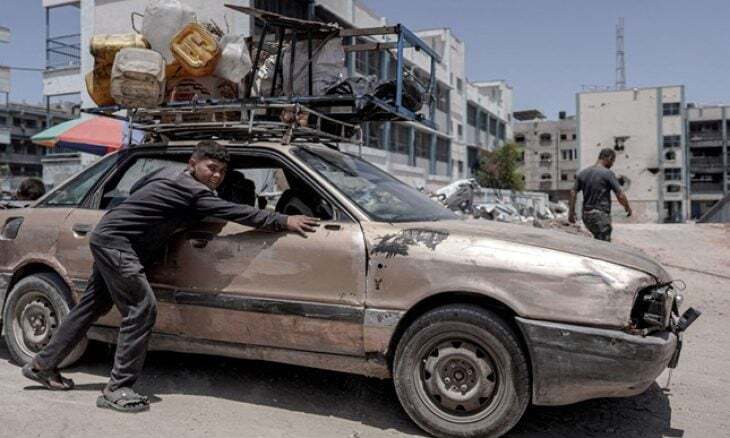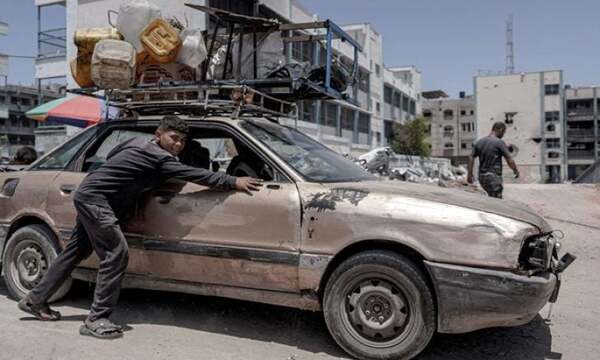Mohammed Al-Kafarneh to Al-Quds: Cars require huge budgets for fuel, maintenance, oils, bodywork, and painting.
Fouad Harzallah to Al-Quds: In the absence of oversight in Gaza, taxi fares have become a new price every day.
Nasser Marzouq to Al-Quds: Any car with a minor problem, its maintenance cost is a dilemma for the car owner and the mechanic.
Taxis and buses are on the verge of stopping operations in the Gaza Strip due to the depletion of all fuel needed to power these vehicles.
Most taxis and medium-sized buses in Gaza run on diesel, which costs around 60 shekels per liter on the black market. Drivers previously resorted to mixing diesel with cooking oil, known locally as "serj," in an attempt to overcome the high price of diesel. However, even this tactic is no longer effective, as the price of a liter of cooking oil has risen to 80 to 90 shekels.
As for cars that run on gasoline, the price per liter has reached 350 shekels, and even cars converted to natural gas are also threatened with closure due to the high price of gas per kilo, which has reached 280 shekels. The last time gas was supplied was three months ago, meaning that the famine afflicting the Gaza Strip has also reached vehicles that run on diesel, gasoline, and mineral oils.
Diesel and gasoline cars alike
Taxi driver Mohammed Al-Kafarneh told Al-Quds that he has two vehicles operating on the route, one running on diesel and the other on gasoline and natural gas. Both vehicles have now stopped operating due to the high fuel prices, especially since he has raised the fare more than five times in a month. This is no longer beneficial because he will be burning fuel without working, especially since citizens are fed up with the high fare prices, in light of the war and poverty.
Al-Kafarna added: "You can't prefer diesel cars to gasoline or vice versa. Currently, all cars require huge budgets for fuel, maintenance, oils, bodywork, and painting. The best thing for me is to stop operating until fuel is available at a price that matches the means of the driver and passenger."
The fare price is constantly rising.
Citizen Fouad Harzallah has repeatedly complained about the high price of taxi fare. In the absence of oversight in Gaza, taxi fares are now set at a new price every day, and even when fuel is brought in, the price remains high.
Harzallah added to Al-Quds: "Every time they say that if fuel comes in, the fare will decrease. This is not true. The fare remains high under other pretexts, such as maintenance. It's as if citizens are required to repair taxis from their own pockets." He called on the relevant authorities to put an end to this situation.
The cost of car maintenance has increased fourfold.
Mechanic Nasser Marzouq told Al-Quds that the cost of car parts has increased four or five times its normal price before the war. This means that even if a car has a minor problem, the maintenance cost will be a dilemma for the car owner and the mechanic, given the scarcity and high cost of car parts. He continued: "A liter of car engine oil has reached 80 shekels, so what about a car that needs four or five liters?"
Marzouq explained that some car parts are unavailable in the auto parts market and can be replaced with parts from other makes of cars. This applies to Hyundais and Kias, for example. However, this does not apply to other cars that suffer from problems, whether from Israeli bombing or even the poor condition of Gaza's devastated streets. He called for pressure on the occupation to allow the entry of all types of car parts and fuel so that the remaining vehicles do not stop working.



Share your opinion
"No diesel or gasoline." Famine has reached Gaza's vehicles, which are threatened with being shut down.